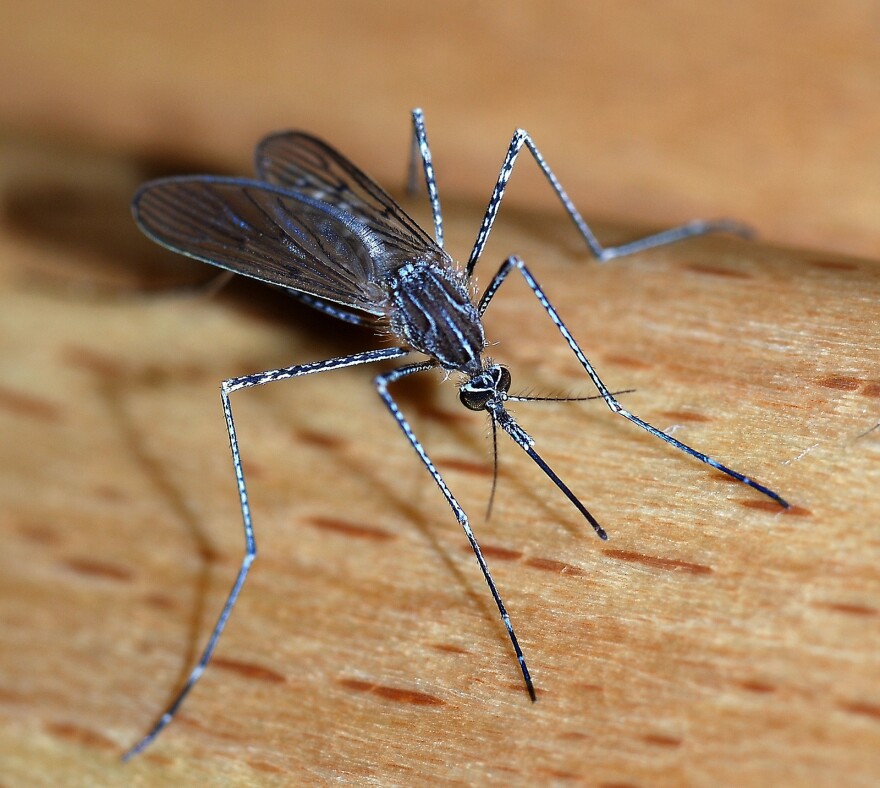AUGUSTA, Maine - The Maine Center for Disease Control and Prevention has confirmed that a York County resident is recuperating from Eastern equine encephalitis. It's the first human case of the mosquito-borne disease in the state, but health industry watchers say they doubt it will be the last.
According to Maine CDC, the patient, described as a "mature" adult, became so ill back in August that hospitalization was necessary. Subsequent blood samples collected and analyzed at a commercial lab revealed the presence of the Eastern equine encephalitis virus, or EEEV.
That sample was then sent to the state's own facility, where the disease was confirmed. Maine CDC Director Dr. Sheila Pinette says most people exposed to the virus will contract the less serious "systemic" form of the disease, which results in two weeks of flu-like symptoms with no lasting consequences. But Maine's first recorded case is of a more serious neuro-invasive form of the disease. And it's this form of the disease that health professionals commonly refer to as EEE, or "triple E."
"The fact of the matter is that it's not that common," Pinette says. "To have neuro-invasive encephalitis is actually less than 4 percent of cases annually a year in the United States."
But that's likely cold comfort for the unlucky few who do develop the disease. EEE, when it invades the central nervous system, almost always requires a lengthy hospital stay, says Pinette. And she says that Maine's newly diagnosed patient, as a senior citizen, was already at a higher risk for developing life-threatening symptoms.
It's the first time that a Maine resident has been diagnosed with EEE. But just over the border, New Hampshire's first human case of EEE since 2009 resulted in the death of 51-year-old Diane Humphreys, of Conway, who fell ill in August and died roughly a month later, says Beth Daly, chief of infectious disease surveillance with New Hampshire's Department of Health and Human Services.
"Unfortunately, a third of all Eastern equine encephalitis patients do end up dying," Daly says. "Of those who recover, many unfortunately end up having long term neurologic impacts." A second person hospitalized this year in New Hampshire is recovering from EEE, says Daly.
While still uncommon, some health experts say mosquito-borne diseases such as EEE are likely to present new challenges for an area of the world unaccustomed to such illness.
"Most of us who have been in Maine for a lot of years are not used to thinking of mosquitos as anything but a bit of an irritant," says Dr. Dora Anne Mills, vice president for clinical affairs at the University of New England. Mills says it's likely that health educators will be paying more attention to such diseases in the future.
"Because the world is changing, particularly with climate change, we are seeing a number of emerging diseases, infections that are here in Maine, for instance, carried by mosquitos, as well as ticks, that we didn't used to see 25 years ago," Mills says.
According to CDC Director DR. Sheila Pinette, Maine's as-yet lone EEE patient has been released from the hospital and is recovering at home.



